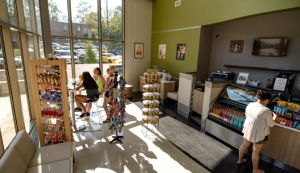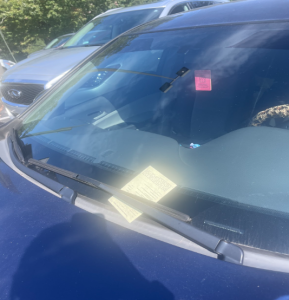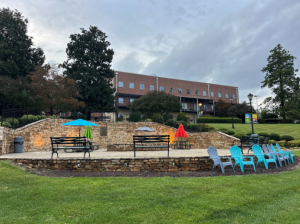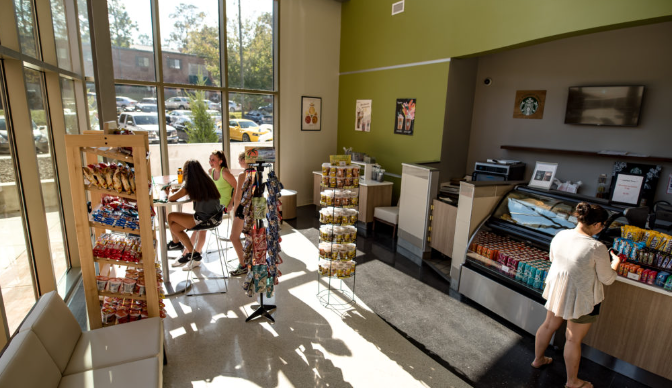G8 Station: No Weekend Accommodations?
September 26, 2022
Best Editorial (1st place) from the Georgia College Press Association.
Piedmont University prides itself on being one of the Universities in Georgia who commits itself to allergy awareness and food accessibility to those with allergy and dietary restrictions. Unlike other universities, Piedmont has an entire station in their dining hall committed to being entirely free of the top eight most common food allergies. Meals prepared in that station are even free from cross-contamination. They call this station the G8 Station, and it’s supposed to be free from cow’s milk, eggs, tree nuts, peanuts, shellfish, wheat, soy and fish.
This station has proved crucial for some students with severe allergies and dietary restrictions. Senior Jo Collinson describes their experience with eating in the dining hall, “I have Celiac Disease, so I can’t eat gluten. It’s an autoimmune disorder, so when gluten enters my body, it tries to fight it off and in turn, since there’s nothing to fight, it injures itself. I mostly eat at the G8 bar.”
Since it can be hard to tell which foods are safe to eat, the G8 station can be a place where students can feel comfortable getting food without fear of a reaction. Collinson says that it can be hard to tell which food items are safe to eat, and “stuff like taco meat has gluten in it, but you wouldn’t think. That’s why I only get tacos if they’re serving them at the G8 bar because I know they’re safe.”
This is great for students who eat in the dining hall during the week; however, for students who live and eat on campus during the weekend, the G8 station is closed, and they are unable to access this crucial resource. What can they do when safe food is no longer accessible? For Collinson, it’s like a juggling act to find food that they can have.
“If I’m here on the weekend, pretty much all I can eat is fries or if they have broccoli,” said Collinson. “There’s like two fries that aren’t coated in flour, so I know I can have them because they don’t have gluten on them.”
Additionally, food allergies can be extremely severe and can often be airborne. Freshman Macy Harp has a severe airborne cinnamon allergy, and while the desserts in the dining hall are often labeled with cinnamon allergens, they can still pose a threat.
“I can walk by it and then start breaking out in hives. All of the desserts are not covered, so I’ll definitely break out,” said Harp. “I wish they would cover the food so it’s not wafting towards you when you come in.”
For those with allergies or dietary restrictions, having a comfortable relationship with food can be a tricky situation. They constantly have to be on their guard to make sure that the environment around them is safe for them to be in. The G8 station helps to ease some worries that they have about their restrictions, but it doesn’t help when it’s closed on the weekends and students need to find alternate food options. Additionally, having sensitive food items in the dining hall can be problematic for some students who have severe airborne allergies, and they are unable to eat normally.
Although it can be difficult to accommodate for those who have peanut allergies, Piedmont University has done a good job of providing food that is safe for most students to eat. However, we can always do better. Providing full ingredient lists for food items so that all students know exactly what is in the food that they’re eating can be helpful to prevent accidental allergic reactions. Additionally, placing the desserts and high-risk food items in covered containers can at least be helpful to contain the allergens enough so that students can grab food to-go if they need to.












